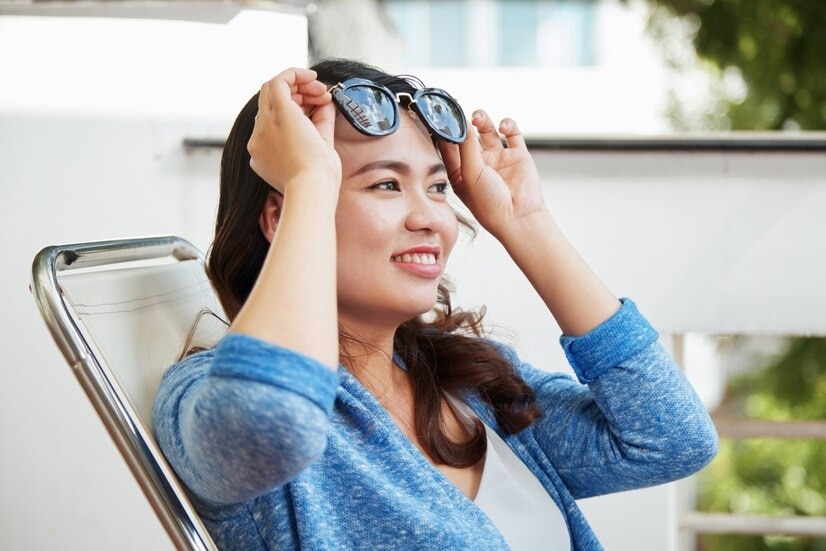It is essential to prioritise the heath of your eyes and protect them from harmful UV rays. Here are 5 essential tips to help you protect your vision and enjoy a safe summer outdoor.
The radiant warmth of the sun, while comforting, conceals a potential threat to our eye health. Many are aware of the necessity of shielding their skin from the sun’s harmful ultraviolet (UV) radiation, yet the importance of safeguarding our eyes often goes overlooked. However, understanding the crucial role of UV protection for eye health, regardless of the season, is paramount in preserving our vision and preventing long-term damage.
Year-Round Threat
Contrary to popular belief, UV radiation is not solely a concern during the scorching summer months. Even on overcast days or during winter, UV rays penetrate clouds, posing a continuous risk to our eyes. Prolonged exposure to UV radiation can lead to various ocular complications, including growths on the eye, cataracts, macular degeneration, sunburned eye and eye cancer. These conditions can significantly impair vision and diminish quality of life if left untreated.
Preventive Measures
Adopting preventive measures to shield our eyes from UV radiation is simple and effective. Investing in quality sunglasses, such as those labelled with UV400, that block 100% of both UVA and UVB rays is essential. In addition, wearing wide-brimmed hats can provide supplementary protection by reducing the amount of direct sunlight reaching the eyes.
Regular Eye Exams
Routine eye examinations are indispensable in maintaining optimal eye health, as they enable early detection of any abnormalities or conditions exacerbated by UV exposure. An optometrist or ophthalmologist can assess eye health and offer personalized recommendations based on individual needs and lifestyle factors.
Limiting Exposure
Limiting outdoor activities during peak sunlight hours, typically between 10 a.m. and 4 p.m., can significantly reduce UV exposure. When spending time outdoors, seek shade whenever possible, especially in areas with high reflective surfaces such as water, sand, or snow, which intensify UV radiation.
Balanced Diet
In addition to external protection, consuming a balanced diet rich in antioxidants can also play a pivotal role in minimizing the sun’s damage to the eyes. Consuming foods high in vitamins A, C and E, zinc and omega-3 fatty acids can help bolster the eyes’ natural defences against UV radiation. Incorporating fruits such as oranges, strawberries and kiwis, as well as vegetables like carrots, spinach, kale and broccoli, provides essential nutrients that support ocular health. In addition, including sources of omega-3 fatty acids, such as salmon, tuna and walnuts, can further fortify the eyes’ resilience to UV-induced damage.
Dr. Rishi Raj Borah is the Country Director of Orbis, India spoke to IANS and said, “The eyes, often referred to as the windows to the soul, are also remarkably delicate organs susceptible to damage from UV radiation. As such, prioritizing year-round UV protection is paramount for preserving eye health and preventing vision-related complications. By having a balanced diet rich in antioxidants and essential vitamins, adopting preventive measures such as wearing UV-protective sunglasses and hats and scheduling regular eye examinations, individuals can safeguard their eyesight and enjoy the beauty of the sun without compromising their eye health. Let us not overlook the importance of protecting our eyes from the sun’s harmful rays—our vision depends on it.”
–>
